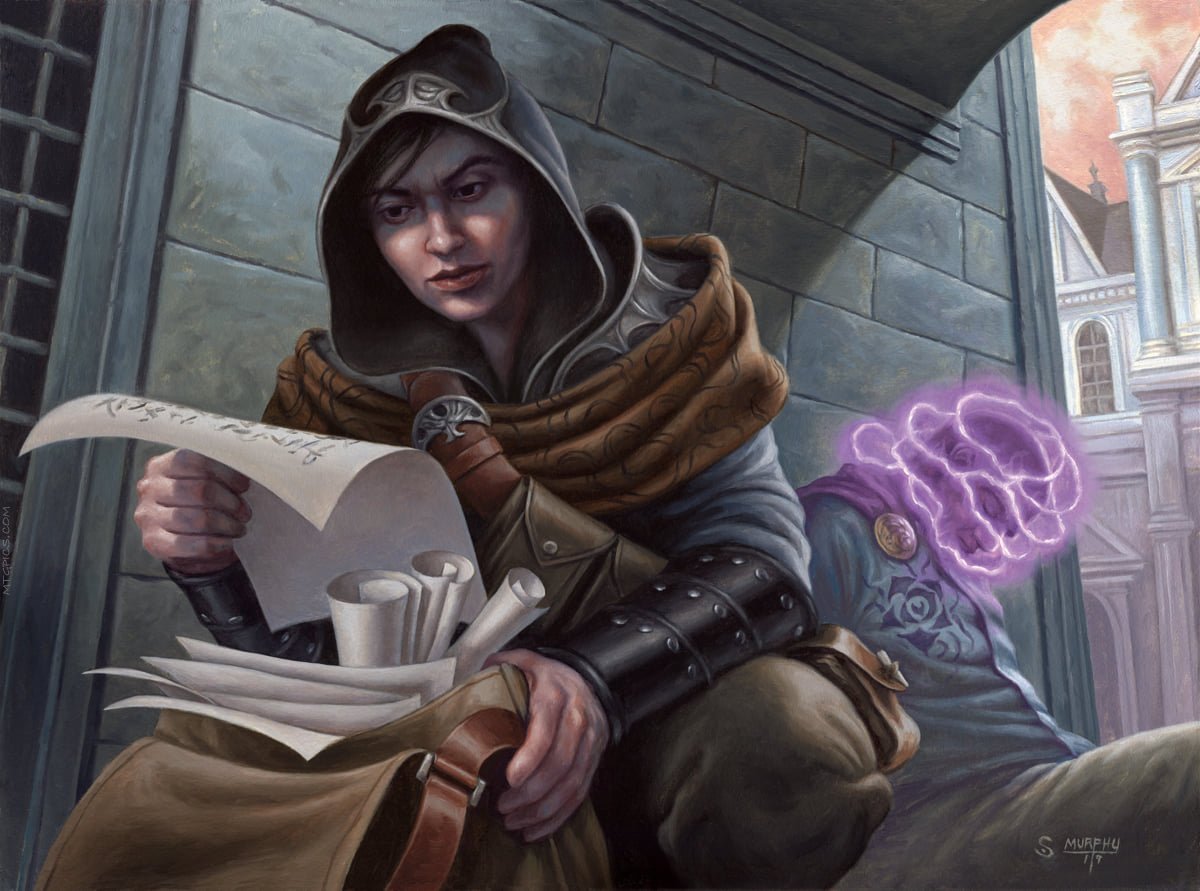Tutors Make Commander a Worse Format

I had originally planned to write another edition of Hidden Gems, but sometimes even the best-laid plans go awry. That's not a bad thing - and one response in particular spurred me to write this article about EDH tutors.
Tutors are bad for 100 card singleton formats. Carry on.
— Marshall Sutcliffe (@Marshall_LR) March 17, 2021
I don't know if this counts as a hot take or not, but I completely agree with Marshall here. So much so, in fact, that I'm willing to stand behind the claim that tutors like Demonic Tutor
Shuffling Sucks
I'll get this out of the way upfront. Magic designers have always referred to it as a "loading screen" - the game cannot progress until you've finished your 30 or 45 second ritual of shuffling your deck and then waiting for one of your opponents to think they're cute and cut it five different ways. No single instance of this is particularly problematic, but I would venture to say that nearly 10 minutes of the typical Commander game in my groups is beset by shuffling.
Fetchlands are one of the biggest offenders here since the vast majority of the time they're going to operate functionally similarly to any other two-color dual land, except you have time to watch a TikTok or three while you wait for the game to finish loading.
But tutors aren't much better, and they come with their own set of problems that even fetchlands don't. When your opponent casts Demonic Tutor
And that's really a best-case scenario. In reality, we've all seen someone in a tough spot cast Dark Petition
And then they still have to shuffle.
Shuffling sucks. So don't play cards that make you do so.
Tutors Make Games Repetitive
After all, that's their point, right? Magic is a game full of variance, and tutors trade resources (time and mana) for reduced - or zero - variance. Simply put, Demonic Tutor
But there's a reason we play Commander instead of slamming our 68-card Soulshift Tribal deck against three of our friends piloting their Elf Combo or Stasis
We play Commander because of the variance. Because nearly every game plays out differently when you're working with 100-card singleton. The player who crushed the first pod with their powerful combo simply may not draw it the next game, or not in the same order. Competitive Magic seeks to eliminate as much variance as possible, and yet the most popular way to play Magic across the globe is the format with the most variance. That's not a coincidence.
Tutors break that experience in half. If every game involves your deck ramping for five turns and then using one of your eight tutors to find the same win condition time and again, the fabric of the format that drew us all in begins to slip away. There's a reason EDHREC has a Saltiest Cards page - people get tired of Emergent Ultimatum
Obviously there's a balance here - the deck running a Diabolic Tutor
Going back to Marshall's tweet, notice that he didn't specify Commander. In pre-pandemic times when we could do stuff like go the bar or gather to cast powerful magic spells at each other, we squared off in many a Canadian Highlander battle. It's 100-card singleton (no commander), and the most powerful cads in Magic's history are legal. But they're gated by a different mechanic: those cards are awarded a point value, and no deck can contain more than 10 points. The power of tutoring is reflected in the points list: Demonic Tutor
While Canadian Highlander has a built-in way to police too much tutoring, Commander does not. That's why the discussion has always been a community issue, and my Brainstorm Brewery cohost Jason Alt wrote the "Who's the Beatdown" of Commander deckbuilding when he introduced the concept of 75% deckbuilding to the world back in 2014 when we were a silly folk who thought Zur the Enchanter
Tutors Make Games More Unfun
This may seem like a retread of the last header, but it's not. So far I've simply described the impact of tutors on any single game, but I haven't tackled the meta issues they cause.
Consider the typical big-mana Lord Windgrace
Now consider that I've watched that Windgrace deck play five or six different tutors in the past two weeks. All of a sudden, instead of three or four cards that are really dangerous, it's 10 to 12. You can't give that deck very long to mess around, because sooner rather than later they're going to find that Tutor to pull out the perfect card.
Consider what that knowledge does to a table. If I know you're mostly at the mercy of the top of your deck, I'm more apt to focus my resources elsewhere and let fate run its course. But when you have a virtual seven or eight Torment of Hailfire
Commander is a lot more fun when you play against the cards in play or in hand, not when you have to play against the top of someone's deck that isn't actually the singleton format we signed up for.
It's clear that Wizards recognizes this issue, too. You can tell there was a very conscious effort with Commander Legends to push back at some of the more repetitive parts of Commander gameplay: card-drawing and tutoring.
The flash on these cards (as opposed to something like Stranglehold
Of course, all of this is reflective of my own experience playing Commander, but it's clear from the response to Marshall's tweet that this topic continues to strike a nerve in the community. I feel strongly about my position here, but I'd love to hear what you think about tutors in EDH.
Thanks for reading,
Corbin Hosler
You can read a response to this article from Jake FitzSimons right here: Tutors Make Commander A Better Format.